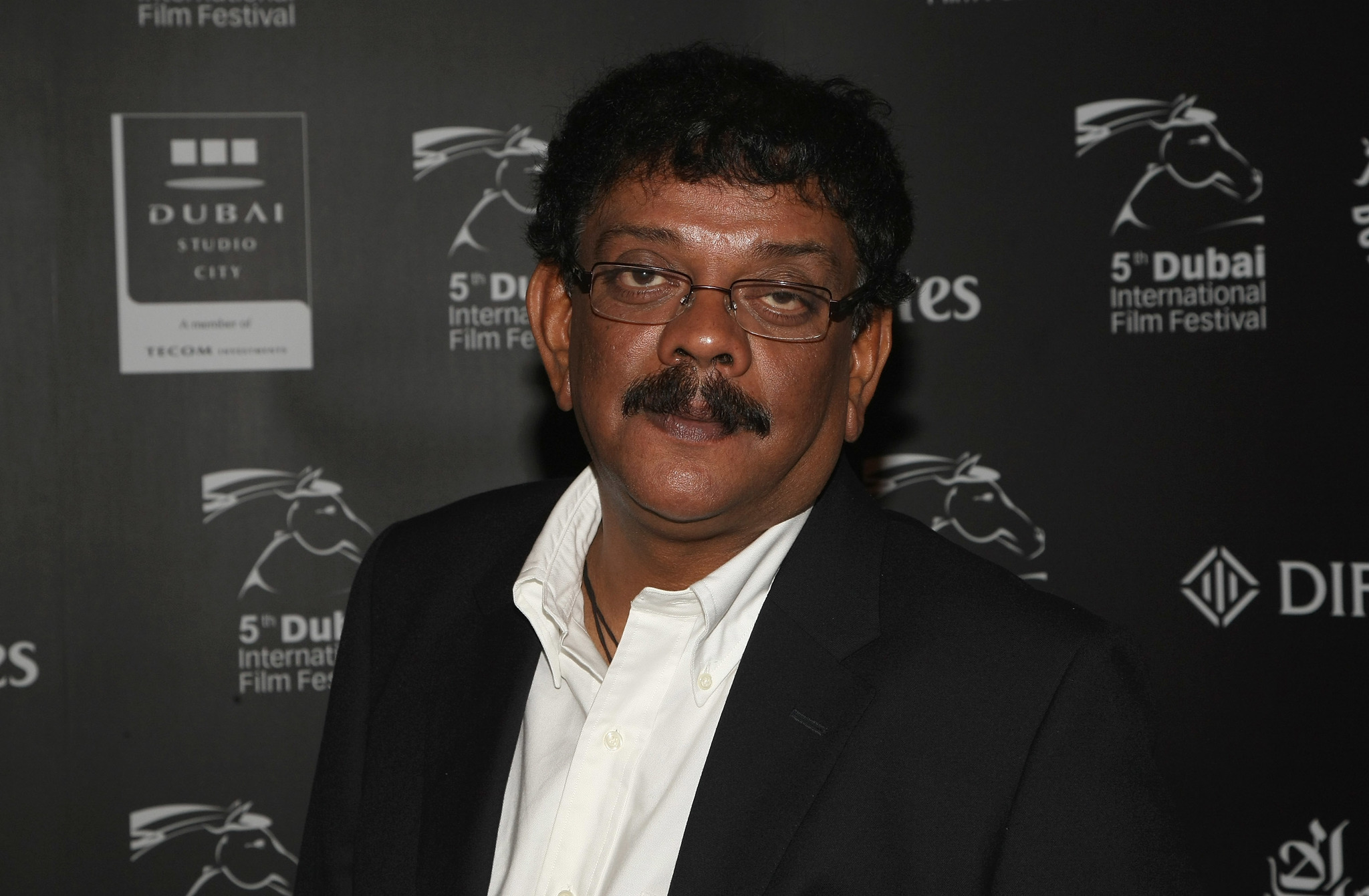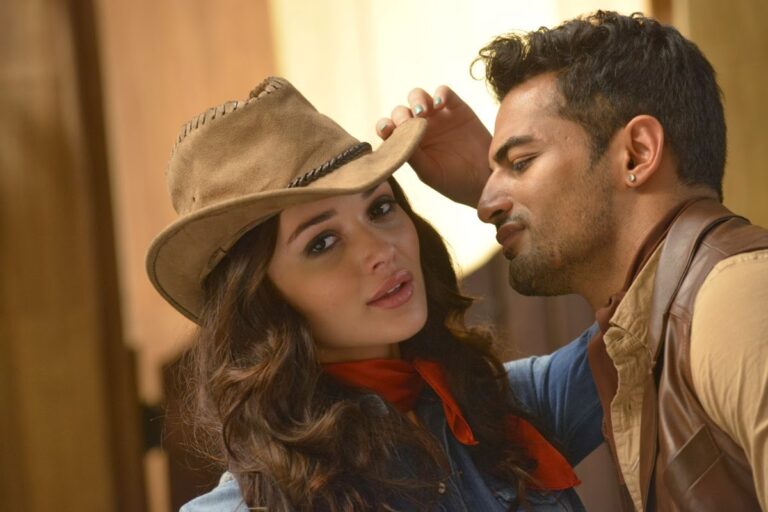Priyadarshan: The Master of Comedy and Versatile Filmmaking in Indian Cinema
Priyadarshan is a veteran Indian filmmaker known for his diverse body of work, spanning across multiple genres and languages. With a career spanning over four decades, Priyadarshan has become synonymous with entertaining cinema, particularly comedy. From heartwarming comedies like Hera Pheri to critically acclaimed dramas like Kanchivaram, Priyadarshan has left an indelible mark on Indian cinema. This article delves into the life and career of Priyadarshan, exploring his journey, key films, collaborations, and his influence on Indian cinema.
Early Life and Background
Childhood and Family Heritage
Priyadarshan Nair was born on January 30, 1957, in Thiruvananthapuram, Kerala, into a middle-class family with no significant ties to the film industry. His father, a librarian, introduced him to the world of literature and cinema at an early age, and young Priyadarshan developed a love for films. His upbringing in Kerala, a state known for its rich cultural heritage and literary tradition, helped shape his early understanding of storytelling.
Education and Formative Years
Priyadarshan attended Government Model Boys Higher Secondary School in Thiruvananthapuram and later pursued a degree in philosophy from University College, Thiruvananthapuram. It was during his college years that Priyadarshan’s passion for films blossomed. He became involved in theater and film societies, where he actively participated in discussions about world cinema and filmmaking techniques. His early exposure to the works of international filmmakers like Akira Kurosawa, Satyajit Ray, and Vittorio De Sica influenced his cinematic sensibilities.
Priyadarshan Entry into Filmmaking
Early Career and Influence of Malayalam Cinema
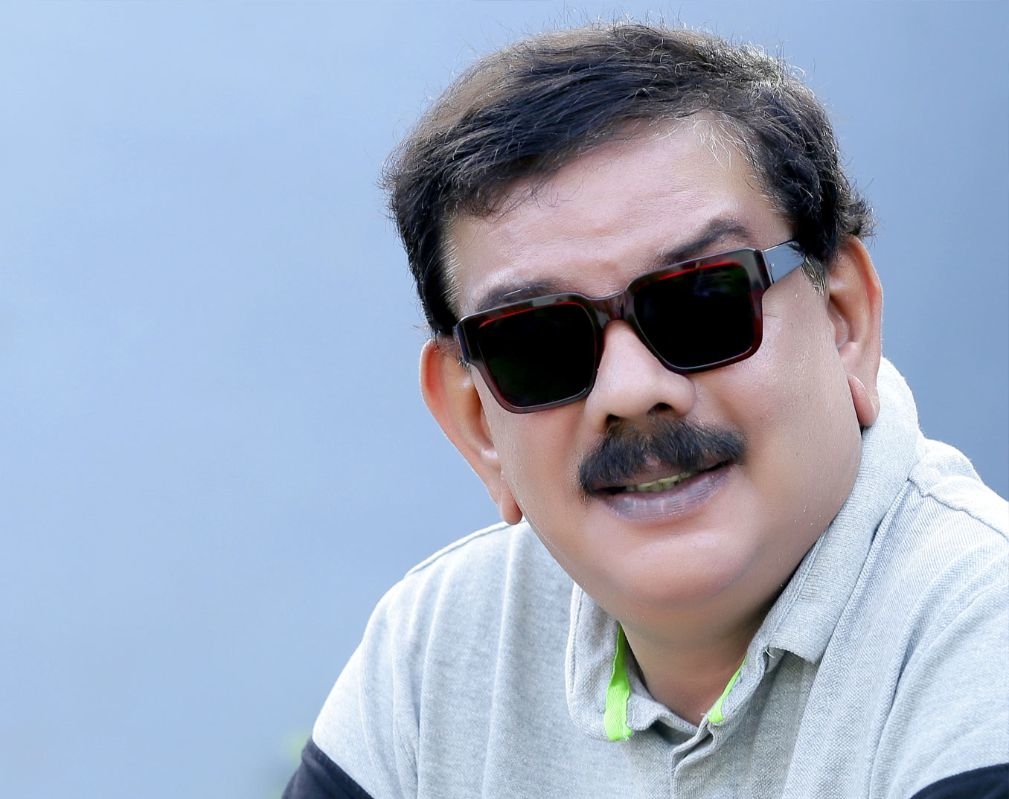
Priyadarshan’s foray into filmmaking began in the late 1970s when he moved to Chennai (then Madras) to pursue his dream of becoming a filmmaker. His first job in the industry was as an assistant to P. Venu, a popular Malayalam film director. Working under P. Venu provided Priyadarshan with a solid foundation in film production and the technical aspects of filmmaking. His early experiences in Malayalam cinema taught him the nuances of balancing artistic expression with commercial viability.
First Breakthrough with Poochakkoru Mookkuthi (1984)
Priyadarshan made his directorial debut with Poochakkoru Mookkuthi (1984), a Malayalam comedy film that became a massive hit. The film, which revolves around a series of misunderstandings and mistaken identities, showcased Priyadarshan’s flair for situational comedy. Poochakkoru Mookkuthi not only marked the beginning of Priyadarshan’s illustrious career but also established him as a director with a unique sense of humor and an eye for entertaining narratives.
Establishing Himself as a Comedy Maestro
Signature Style: Blending Comedy with Drama
Priyadarshan is best known for his comedies, but his films often blend elements of drama, romance, and action, making his work appealing to a broad audience. His comedic style is characterized by farcical situations, mistaken identities, slapstick humor, and fast-paced narratives. Films like Boeing Boeing (1985) and Mazha Peyyunnu Maddalam Kottunnu (1986) further cemented his reputation as a master of comedy.
Priyadarshan’s ability to balance humor with human emotions is one of the key reasons for his success. His films, while often comical, never lose sight of the underlying human relationships and emotional arcs of the characters. This signature style became his trademark, and over the years, he delivered a string of comedy hits in the Malayalam film industry.
Expanding His Reach: Collaborations with Mohanlal
Priyadarshan’s collaborations with Mohanlal, one of Malayalam cinema’s biggest stars, became legendary. Their partnership produced several iconic films, with Mohanlal often portraying characters that were caught in absurd, comedic situations. Films like Chithram (1988), Kilukkam (1991), and Mithunam (1993) are considered some of the finest examples of Malayalam cinema’s comedic genre.
Mithunam, in particular, showcased the depth of their collaboration, combining elements of family drama with comedy, further cementing Priyadarshan’s versatility as a director. His partnership with Mohanlal lasted for decades, and their work together helped redefine the comedy genre in Malayalam cinema.
Priyadarshan Transition to Bollywood and Pan-Indian Success
First Bollywood Film: Muskurahat (1992)
In the early 1990s, Priyadarshan ventured into Bollywood, bringing his unique brand of comedy and storytelling to a larger audience. His first Hindi film, Muskurahat (1992), was a remake of his Malayalam hit Kilukkam. Although the film did not achieve the commercial success that was expected, it showcased Priyadarshan’s ability to adapt his style to the tastes of Hindi-speaking audiences.
Despite the lukewarm response to Muskurahat, Priyadarshan continued to work in Bollywood, gradually refining his approach and building relationships with key actors and producers in the industry.
Breakthrough in Bollywood with Hera Pheri (2000)
Priyadarshan’s real breakthrough in Bollywood came with the 2000 comedy classic Hera Pheri. Starring Akshay Kumar, Paresh Rawal, and Suniel Shetty, the film was a remake of Priyadarshan’s own Malayalam film Ramji Rao Speaking (1989). Hera Pheri became an instant success and is now considered one of the greatest Bollywood comedies of all time.
The film’s success can be attributed to Priyadarshan’s brilliant direction and his ability to extract comedic performances from the lead actors. Paresh Rawal’s portrayal of Baburao Ganpatrao Apte, in particular, became iconic, and Hera Pheri spawned a sequel, Phir Hera Pheri (2006), which was also successful.
Building on Success: Hungama, Hulchul, and Malamaal Weekly
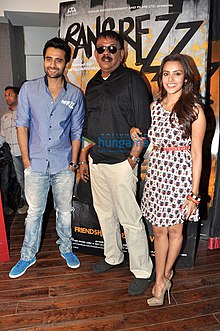
Following the success of Hera Pheri, Priyadarshan established himself as a leading comedy director in Bollywood. Films like Hungama (2003), Hulchul (2004), Garam Masala (2005), and Malamaal Weekly (2006) reinforced his reputation as a filmmaker who could deliver commercially successful, family-friendly comedies.
Priyadarshan’s films during this period were marked by ensemble casts, fast-paced dialogues, and situational humor, often involving multiple characters and subplots that eventually converged in a chaotic yet hilarious climax. These films became box office hits and were praised for their entertainment value.
Priyadarshan : Expanding Horizons: Drama and Period Films
Transition to Drama with Virasat (1997)
While Priyadarshan is best known for his comedies, he has also directed several critically acclaimed dramas. One of his most notable ventures into drama was Virasat (1997), a Hindi film based on the Tamil movie Thevar Magan. Starring Anil Kapoor, Tabu, and Amrish Puri, Virasat dealt with themes of tradition, modernization, and familial duty.
Virasat was a critical and commercial success, and it earned Priyadarshan several accolades for his direction. The film showcased his ability to handle serious, thought-provoking themes while maintaining a gripping narrative. The film won multiple Filmfare Awards and is still regarded as one of the finest dramas of 1990s Bollywood.
The Critically Acclaimed Kanchivaram (2008)
Priyadarshan’s most celebrated non-comedy film is Kanchivaram (2008), a Tamil-language period drama that tells the story of a silk weaver’s struggles in pre-independence India. The film received widespread critical acclaim for its poignant portrayal of the working class and the hardships faced by laborers during that era.
Kanchivaram was a departure from Priyadarshan’s typical commercial fare and highlighted his versatility as a filmmaker. The film won the National Film Award for Best Feature Film, and its lead actor, Prakash Raj, won the National Film Award for Best Actor for his powerful performance. Kanchivaram remains a testament to Priyadarshan’s ability to handle serious, socially relevant themes with sensitivity and nuance.
Priyadarshan Collaborations with Actors and Industry Impact
Long-Standing Partnerships with Mohanlal and Akshay Kumar
Their collaborations have been instrumental in shaping Akshay Kumar’s career as a versatile actor, especially in the comedy genre. Priyadarshan’s films gave Akshay Kumar a platform to explore his comic timing, and films like Hera Pheri and Bhool Bhulaiyaa are often credited with transforming Akshay into one of the top actors in Bollywood. The success of these films also cemented Priyadarshan’s reputation as one of Bollywood’s leading directors.
Working with Paresh Rawal and Other Veteran Actors
Priyadarshan’s collaborations with Paresh Rawal also deserve special mention. Rawal’s portrayal of Baburao in Hera Pheri remains one of the most iconic comedic performances in Indian cinema, and his roles in Hungama, Hulchul, and Malamaal Weekly further showcased the actor’s impeccable comic timing under Priyadarshan’s direction. Priyadarshan’s ability to draw out the best in veteran actors like Paresh Rawal, Om Puri, and Amrish Puri is one of the reasons why his films have resonated with audiences across generations.
By collaborating with a wide range of actors from various regions of India, Priyadarshan was able to merge regional film sensibilities with Bollywood’s commercial appeal, which made his films accessible and popular across different demographics. This unique ability to cast and direct actors of all stripes—from superstars to character actors—has been a defining characteristic of his directorial style.
Evolution of Priyadarshan’s Directorial Style
Mastery of Comedy: Slapstick to Situational Humor

Priyadarshan’s comedic films are often categorized by the use of situational humor and farce, with a particular emphasis on misunderstandings, mistaken identities, and elaborate setups that lead to chaotic yet entertaining climaxes. Whether it was the farcical elements of Hera Pheri or the complex, multi-character subplots in Hungama, Priyadarshan’s mastery of comedy was marked by his ability to balance absurdity with emotional depth. He often used physical comedy and slapstick humor but always grounded it with genuine character development.
One of the key aspects of Priyadarshan’s comedy was his ability to make the audience feel invested in the characters’ plights, even in the most exaggerated of circumstances. His use of sound design, comic timing, and carefully constructed visual gags made his comedies stand out from the typical Bollywood fare.
Venturing into Socially Conscious Dramas
While Priyadarshan is best known for his comedies, his ability to handle serious subjects with sensitivity is another hallmark of his versatility. Films like Virasat and Kanchivaram were notable for addressing societal issues such as caste dynamics, labor rights, and tradition versus modernization. These films not only showcased his range as a filmmaker but also helped him earn critical acclaim beyond the commercial cinema space.
With Kanchivaram, Priyadarshan proved that he could transcend the boundaries of commercial cinema and create films that were both artistic and socially relevant. His ability to craft deeply human stories, particularly about India’s working class, demonstrated a nuanced understanding of the socio-political realities of India.
Priyadarshan : Challenges and Controversies in Priyadarshan’s Career
Dealing with Box Office Failures
Despite his many successes, Priyadarshan has not been immune to box office failures. Films like Billu (2009) and Tezz (2012) failed to replicate the success of his earlier work. Tezz, in particular, was a high-budget action thriller that did not fare well at the box office, leading to a temporary lull in his Bollywood career.
However, Priyadarshan has always been resilient in the face of setbacks. He has spoken about the unpredictable nature of the film industry, acknowledging that even established directors face challenges with every new release. Despite these failures, Priyadarshan’s overall body of work remains impressive, and he continues to be regarded as one of India’s most successful and enduring filmmakers.
Criticism Over Remakes and Lack of Originality
Another criticism that Priyadarshan has faced over the years is his frequent reliance on remakes, particularly of his own Malayalam films in Bollywood. While films like Hera Pheri and Hungama were massive successes, some critics felt that Priyadarshan was relying too heavily on rehashing older material rather than creating original content. Additionally, many of his Bollywood films were adaptations of foreign films, leading to accusations of a lack of originality.
However, Priyadarshan has defended his choice to remake films, stating that adapting successful stories for new audiences is a creative challenge in itself. He has argued that each film, even if based on a prior work, is treated with fresh ideas and a new perspective, making it unique to the cultural context in which it is made.
Priyadarshan Legacy and Influence on Indian Cinema
Popularizing Comedy in Indian Cinema
Priyadarshan’s contribution to Indian cinema, particularly in the realm of comedy, cannot be overstated. He is one of the few directors who successfully bridged the gap between regional cinema and Bollywood, bringing the best of both worlds to his films. His distinct comedic style, which blends farce with human emotion, has influenced a generation of filmmakers who have sought to emulate his brand of situational humor.
Priyadarshan’s films have inspired many modern Bollywood comedies, and directors like Rohit Shetty and Anees Bazmee have cited him as an influence. Films like Hera Pheri and Hungama continue to be regarded as classics, and they are often referenced in pop culture. His films have created a lasting legacy of light-hearted, feel-good cinema that transcends language and cultural barriers.
Mentoring Future Talent
Beyond his work as a director, Priyadarshan has played a crucial role in mentoring and guiding new talent in the Indian film industry. He has given opportunities to several young actors, technicians, and writers who have gone on to have successful careers. His collaborations with younger actors like Akshay Kumar, Suniel Shetty, and Shilpa Shetty in the early 2000s helped shape their careers and solidify their positions in Bollywood.
His ability to nurture talent and foster collaborations across different film industries—Malayalam, Tamil, and Hindi—has made him a respected figure in Indian cinema.
Recent Work and Return to Malayalam Cinema
Reconnection with Malayalam Cinema: Marakkar: Lion of the Arabian Sea (2021)
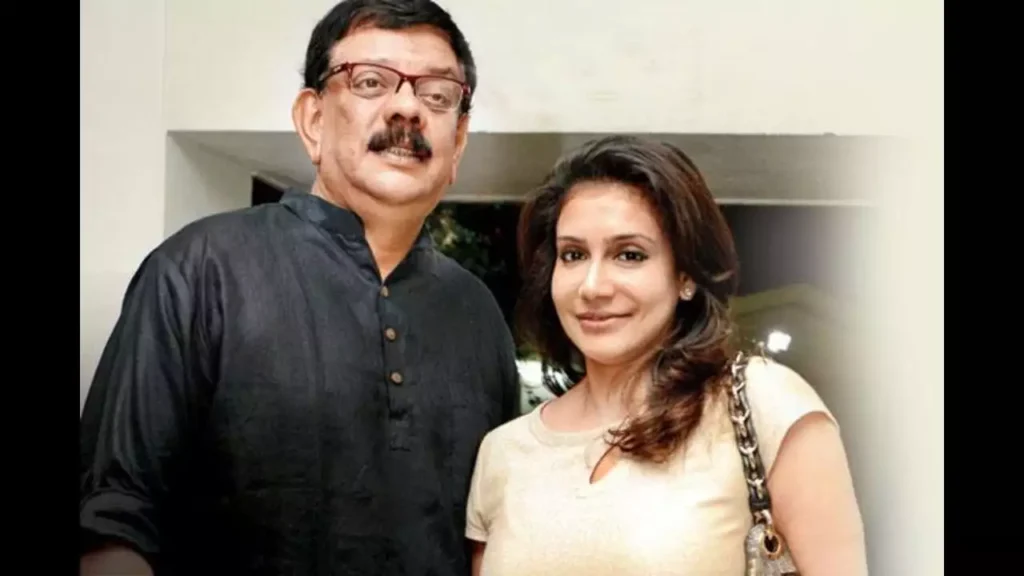
After focusing on Bollywood for much of his career, Priyadarshan returned to Malayalam cinema with Marakkar: Lion of the Arabian Sea (2021). The historical epic, starring Mohanlal, was one of the most ambitious projects of Priyadarshan’s career, both in terms of scale and budget. The film, which tells the story of Kunjali Marakkar IV, a legendary naval chief of the Zamorin, was notable for its elaborate production design, special effects, and historical significance.
Marakkar won three National Film Awards, including Best Feature Film, demonstrating that Priyadarshan’s storytelling prowess continues to resonate with audiences and critics alike.
Future Projects and Upcoming Ventures
Priyadarshan has expressed interest in continuing to explore diverse genres and formats in the coming years. While he is known for his mastery of comedy, he has hinted at a desire to make more films that challenge conventional storytelling and address pressing social issues. His future projects are expected to include both comedies and dramas, as well as potential collaborations with new actors and emerging talents in the Indian film industry.
Conclusion
Priyadarshan’s career as a filmmaker has been nothing short of extraordinary. From his early days in Malayalam cinema to becoming one of Bollywood’s most successful comedy directors, Priyadarshan’s journey reflects his versatility, creativity, and dedication to storytelling. His ability to adapt to different genres—from slapstick comedies to socially relevant dramas—demonstrates his enduring relevance in the Indian film industry.
Priyadarshan’s legacy as a filmmaker is defined by his ability to entertain while also providing thoughtful commentary on human relationships and societal issues. His collaborations with actors like Mohanlal and Akshay Kumar have resulted in some of the most iconic films in Indian cinema, and his influence on the comedy genre continues to inspire filmmakers today.
As he continues to explore new cinematic horizons, Priyadarshan remains one of the most respected and admired directors in Indian cinema, a true master of his craft who has left an indelible mark on the world of filmmaking.
